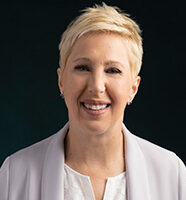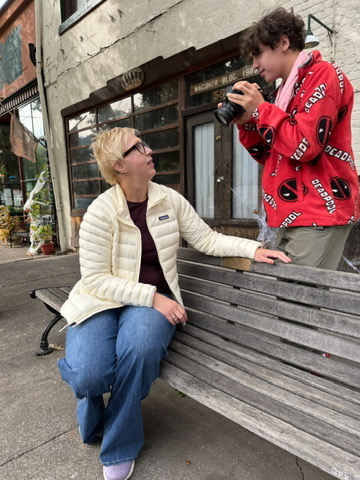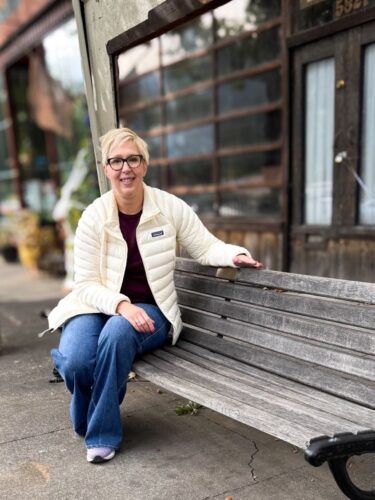
Professional trajectories are often shaped by a confluence of personal experiences, societal structures, and professional aspirations. While traditional career development frameworks emphasize strategic planning and measurable outcomes, personal circumstances can introduce transformative shifts that redefine both purpose and professional direction. My own career trajectory was profoundly influenced by the birth of my son in 2009, an experience that not only altered my personal life but also reshaped my understanding of leadership, healthcare systems, and the role of parent advocates in policy reform.
Born at just 30 weeks and 3 days, weighing 1130 grams, my son’s premature arrival was a defining moment that reoriented my perspective as both a parent and a professional. At the time, I had experience in healthcare workforce development, talent recruitment, and financial risk management. My approach to professional success was rooted in strategic thinking, data-driven decision-making, and a relentless pursuit of measurable outcomes. However, the experience of navigating the Newborn Intensive Care Unit (NICU) introduced me to an entirely different paradigm—one in which success was measured not in quantifiable metrics but in the nuanced, moment-to-moment interactions that defined my son’s survival and development.

During our 56-day NICU stay, I was immersed in an environment where caregiving was deeply attuned to sensory cues and behavioral rhythms. The NIDCAP-trained nurses who cared for my son introduced me to the practice of infant listening—an approach that required interpreting behavioral responses to external stimuli and recognizing subtle patterns in reflexes. This experience starkly contrasted with my previous business management mindset, where structure, efficiency, and predefined metrics dictated success. I found myself navigating the unpredictable reality of neurodiversity, anticipating meltdowns, and dissecting their triggers with the meticulousness of an investigator. Unlike business analytics, which offer clear metrics for performance evaluation, the challenges of caregiving required adaptability, patience, and a profound emotional intelligence—skills often undervalued in professional settings.
Beyond the personal realm, societal perceptions of neurodiversity and caregiving further complicated my transition. The identity shift from a poised corporate professional to a parent managing public sensory overloads—at times carrying my child out of public spaces “surfboard style”—was accompanied by feelings of shame and professional invalidation. This stigma extended into professional spheres, where the credibility of parents as advocates and experts in healthcare reform lacked performance metrics for evaluation. The contrast between my husband’s widely recognized leadership—rooted in his roles as a community college dean and U.S. Air Force Major—and my own evolving identity as a NICU Parent Leader underscored the disparities in how different forms of leadership are valued.
This recognition fueled my academic pursuits, leading me to obtain a Master of Arts in Organizational Leadership and pursue a Ph.D. in Leadership Studies (ABD – 2026). My research focuses on the organizational strategies, policies, and development of credible parent stakeholders in health system reform. A significant gap in the literature exists regarding the role of parents as professionals in research, non-profit leadership, and policy advocacy. Through my work, I have sought to bridge this gap by researching organizational leadership and talent development while collaborating with parents who, like me, have leveraged their professional expertise to drive systemic change in neonatal care.
My transition into advocacy was catalyzed when a neonatologist invited me to serve as a parent advisor that would amplify the needs and voices of NICU parents. A pivotal moment in this journey was the realization that I could confidently engage with hospital executives and policymakers because of my previous work experience, articulating the needs of families navigating the NICU experience. This awareness reinforced my commitment to deepening my expertise in social determinants of health, social justice, and leadership—areas essential for driving meaningful reform.
Through over 3500 hours of advisory work with NICU organizations, I have come to recognize that while the role of the NICU Parent Leader is increasingly acknowledged, measuring its impact remains underdeveloped. Performance metrics for non-profits exist, yet the rigorous research necessary to evaluate the effectiveness of patient and parent engagement in healthcare decision-making is still in its early stages. There is a critical need for structured methods to assess the contributions of parent advocates in shaping institutional policies and improving patient outcomes.
Reflecting on my NICU experience, I continually return to the foundational lessons taught by NIDCAP-trained providers. In the NICU, I learned the discipline of listening—not only to external stimuli but to the nuanced expressions of my son’s sensory needs. The meditative practice of kangaroo care, the establishment of consistent caregiving routines, and the ability to create a calm, responsive environment have remained guiding principles throughout my professional and academic journey.
This journey has also illuminated the indispensable role of intuition in leadership and problem-solving. While my early career was driven by analytical reasoning and structured decision-making, my experiences as a parent and advocate have underscored the value of intuitive foresight and awareness. The ability to anticipate challenges, navigate ambiguity, and trust in non-traditional forms of knowledge has been instrumental in my efforts to influence healthcare policy and organizational strategy. Intuition, much like structured research, plays a critical role in fostering innovation and driving systemic change.
By integrating intuitive insights with evidence-based research and strategic planning, I have found a deeper sense of purpose in my work. The discipline of focus, which once defined my corporate identity, now coexists with the discipline of intuitive exploration. Just as I learned to listen attentively to my son’s needs in the NICU, I have applied the same principles to my engagement with policymakers, researchers, and fellow parent advocates. In doing so, I have come to appreciate that leadership is not solely defined by positional authority or quantitative metrics, but by the capacity to listen, adapt, and challenge existing paradigms in pursuit of meaningful transformation.
NIDCAP profoundly transformed both my personal and professional life, reshaping my understanding of leadership and decision-making. While strategic thinking, data-driven analysis, and measurable outcomes are essential for effective organizational management, they represent only part of the equation. Data provides valuable insights into performance and results, while innovation arises from the ability to listen deeply—both to individuals and to the broader organizational landscape. Cultivating intuition and creating space for reflective listening are just as critical as data extraction and performance metrics, as they restore our capacity to interpret complex challenges, anticipate emerging needs, and drive meaningful change.
Katie Reginato Cascamo, MA
Leadership Development Practitioner



Katie and Gio
